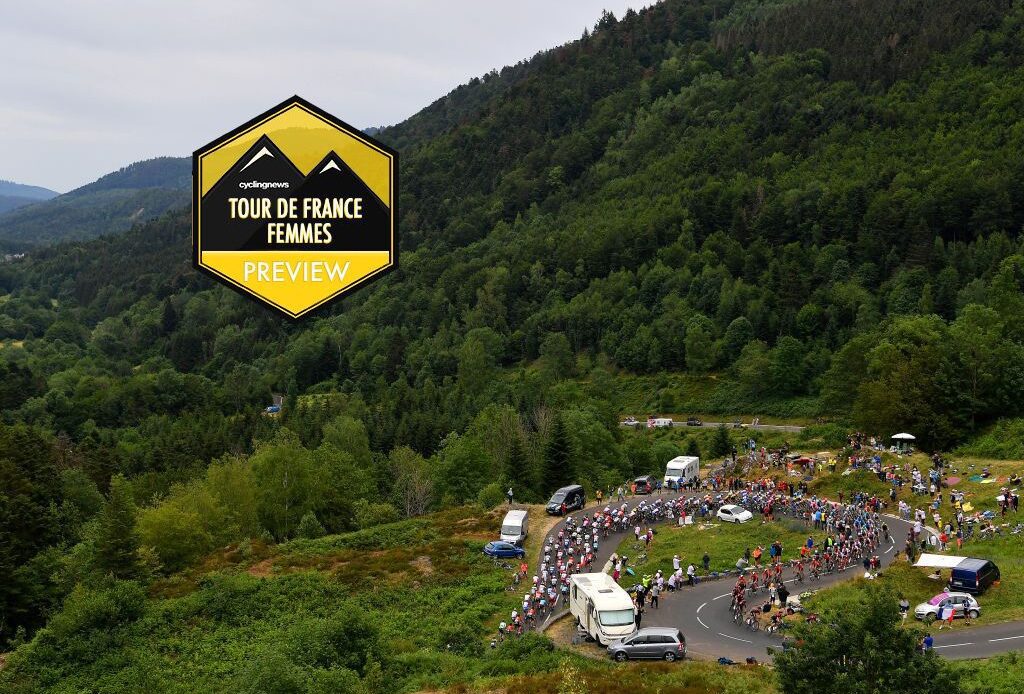The route revealed for the Tour de France Femmes promised a balance of flat and punchy stages, sectors of gravel, and two mountain finishes all packed into the eight days of racing set to take place from July 24-31.
There is, notably, no individual time trial, and so the smaller separations, so far, have happen throughout the earlier puncheur-style stages, and even on the gravel stage 4 that included six climbs and four sections of unpaved roads in the last 60km of the 126km race from Troyes to Bar-sur-Aube. Stage 5 also proved to be decisive as the longest day of the event at 175.6km, saw a mass crash affect the peloton.
Marianne Vos (Jumbo-Visma) has won two stages and has placed in the top five in all of the six stage. She has led the overall classification since winning stage 2 but recognised that she is likely to lose the overall race lead as the race reaches the mountains this weekend.
The race does not travel to the iconic ascents of the Alps or the Pyrenees, as it did in the ASO-run editions held in 1984-89 with the Col du Galibier, Mont Ventoux, Tourmalet, l’Alpe d’Huez or Col de Joux Plane. At this edition of the Tour de France Femmes it will be the north-eastern Vosges that hosts the GC challenges.
The decisive battle for the overall classification will take place on stage 7 into Le Markstein and stage 8 atop La Super Planche des Belles Filles.
The route of the Tour de France Femmes will include 26 categorised ascents, and while the majority of those have been short and steep, the women’s peloton will now contest the bigger and more decisive climbs on the final two days of racing.
Cyclingnews highlights 5 key climbs that will impact how the race unfolds at the Tour de France Femmes.
Petit Ballon
Stage 7 marks the beginning of the mountain stages at the Tour de France.
Petit Ballon is the first of a trio of climbs, a 9km ascent with an average gradient of 8.1%. It peaks at 48.6km into the race. The climb starts out with a 10% ramp for the first kilometre, and while it eases off to 7.7% for the next 2km, it reaches over 9% mid-climb.
The gradient then remains between 6% and 8% for the last 5km. It could mark the first attacks of the stage or it could be warm-up for the mid-race Col du Platzerwasel or the finale up the Grand Ballon.
Kasia Niewiadoma (Canyon-SRAM) believes that this is the toughest climb of the stage, and she expects the peloton to shatter, starting here, and on route to…
Click Here to Read the Full Original Article at CyclingNews RSS Feed…

